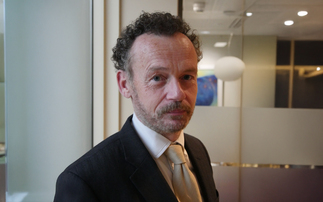Due to dramatic changes in the hedge fund industry past performance is no longer deemed an accurate indicator of future returns. As such, GAM have adopted a forward-looking approach, investing in start-up funds with an edge
For the vast majority of hedge fund investors, past performance still acts as the most important variable when assessing whether or not to invest in a particular hedge fund. If hedge funds show consistent returns, we should, in theory, be able to invest in a manager with a good track record and assume that performance will continue to be as impressive in the future.
However, GAM believes that past performance is no longer an accurate guide to future risk/return profiles at either strategy or manager level. The hedge fund industry has undergone some dramatic changes in the past few years and our research suggests that there is limited persistency in performance. As a result, investors basing their decisions on historical data are likely to be disappointed.
These changes are largely attributable to growth in available capital and the significant influx of new managers into the hedge fund industry. At the same time, global economies are increasingly controlled by central bank monetary policies and the co-ordinated management of interest rate expectations. This has led to lower market volatility and fewer opportunities for managers to exploit volatility mispricings.
One of our key beliefs is that hedge fund investors need to adopt a more forward-looking approach to their investment strategies. Could shrewd investing in start-up funds be the answer to achieving sought after returns?
How has the hedge fund market developed?
The attraction of hedge funds came to the fore during the equity bear market period between March 2000 and March 2003. During this time, leading funds of hedge funds consistently produced positive returns when many equity long only investors experienced losses of 30-40%.
Demand for hedge funds began to pour in, initially coming from wealthy private clients and family offices who were aware of the product and wanted to increase their exposure to these less volatile investments. Intermediaries then began to show interest, resulting in a sharp increase in the demand for hedge funds. This increase in demand was matched by the launch of many new hedge funds. Between 2000 and 2004, the number of new managers grew at an incredible rate of approximately 20-25% each year that resulted in the universe of hedge funds doubling over the period. In 2005, the industry displayed a more steady growth rate of approximately 7-10%, still a healthy increase.
Historically, hedge funds were started by exceptionally gifted equity long only stock pickers, talented proprietary traders from investment banks and ex-floor traders from commodity exchanges. However, since the beginning of 2000, the source of new hedge funds has changed. Virtually every equity long only fund manager appears to be trying, and often succeeding, to establish a hedge fund.
Identifying talent
New hedge funds are being set up daily all over the world, not only in the traditional financial centres but also in locations as diverse as San Francisco, Madrid, Moscow and Hawaii. The task of identifying promising but as yet undiscovered hedge funds has become more challenging.
The hedge fund universe exhibits a vast distribution of returns and future returns have become much harder to predict. As a result, hedge fund investors need stronger research capabilities now more than ever. We believe that there are currently more than 6,500 funds within the hedge fund universe. In order to conduct extensive analysis of these funds, the universe must at first be segmented by strategy and subsequently by sub-strategies. It is no longer valid to suggest that an individual, or even a single team, can cover all permutations of equity long/short, trading or arbitrage strategies. The effective coverage of the hedge fund universe now requires the formation of smaller dedicated teams of strategy specialists. These teams should be primarily responsible for conducting initial due diligence assessments and re-evaluating their respective hedge fund strategies on an on-going and consistent basis. Large, established fund of hedge fund organisations have a competitive advantage in being better able to cover the spectrum of managers at this level.
The key to early stage investing
A systematic approach to early stage investing ensures that only limited risk is passed on to investors, while allowing strong relationships to be built with a wide array of managers. These investments need to be supported by a close monitoring process, conducted by an independent operational risk team. As more data is gathered, experience is gained and confidence with a manager increases, the amount of capital invested with that manager can also increase.
We believe that many new funds have an exploitable 'edge', which can be either technical or knowledge-based, during their first years of trading. At this stage, they are motivated to achieve, whereas asset accumulation often leads to a change of approach as the focus changes from managing investment risk to managing business risk. When this change takes place, the fund manager is no longer solely focused on being the top-performing fund or maximising the Nav of the hedge fund, but is increasingly aware of the potential business risks involved in financially satisfying an increased number of partners or employees.
Understanding when to redeem an investment is as important as the initial identification of talent. Therefore, the close monitoring of underlying managers is key to continued performance. In the current environment of lower absolute returns, it is increasingly important to ensure that every manager in the portfolio is meeting their objectives. Prior to investment, it is essential to define each manager's expectation of the return profile for their fund across market conditions. Prepared with this information, we should then define the absolute, relative and risk-adjusted return expectations for that manager. Investors often take too long to act on disappointing performance, being unsure whether it is due to that specific strategy, the prevailing market conditions or poor stock picking.
Conclusion
The rapid expansion of the hedge fund universe, and the vast array of abilities within that universe, presents new opportunities as well as challenges for the funds of hedge funds industry. In order to outperform our peers and deliver our clients the returns that match their expectations, we need to have the ability to find talented new managers, while maintaining investments with those that continue to perform well.
We believe that early stage investments should be primarily driven by bottom-up research and the close monitoring of allocations to ensure that each fund delivers in line with, or above, expectations. Extensive investment in research is essential and means that the depth and breadth of analysis can continue to develop, allowing a better insight into hedge fund strategies and, specifically, hedge fund managers.
There are many competitive advantages to being part of a large, established fund of hedge fund organisation. Large funds of hedge funds benefit from having better resourced in-house teams to conduct detailed research of the market place and their existing investments. Importantly, opportunities to invest with the best of the new start-ups will arise as these managers tend to approach such companies to request seed capital for their hedge funds.
For more details on GAM's fund range, please contact Bridget O'Callaghan, telephone +44 (0) 20 7393 8733. Alternatively, email GAM at [email protected] or go to www.gam.com












